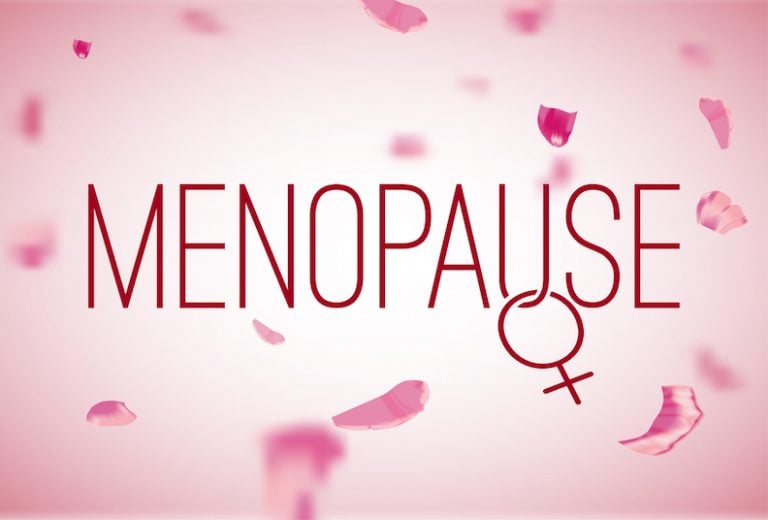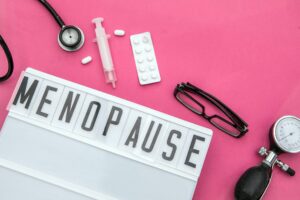
Menopause Symptoms and Depression Awareness
Today I want to discuss an important topic that many of my patients face or will inevitably face in their lifetime- Menopause.
Brace yourself, because Menopause is coming!
When I used to think about menopause, I thought about old age, sagging skin, dryness, and generally emotional time for women. I was always scared. Images of the GoldenGirls is what I remember when I was growing up. Blanche Devaroe living her best life after 50 would sometimes reassure me that everything will be okay! Even today, we have women like Jennifer Lopez and other beautiful, brilliant and talented women over the age of 50 who are doing and looking their best ever.
So, what’s my point? AGE is just a number and we should all try to embrace it.
My goal for myself and my patients while navigating this process is keeping ourselves in good physical and mental health. This Is essential, because by the year 2025 it is predicted that 1.1 billion woman worldwide will be postmenopausal. This means we need to learn how to embrace and navigate this inevitable life event.
Now that I’m closer to menopause than menarche and 1/3 of my patients are in the same boat, it’s time to de-stigmatize menopause.
What the heck does menopause or postmenopausal mean?
It all boils down to hormones, remember those? Well let’s remember females are all born with all the eggs they will ever have by 20 weeks in utero. These eggs produce hormones that are not only important for reproductive and sexual health, but as you will learn, it helps the entire body in multiple ways.
Natura menopause encompasses a natural decline in reproductive hormones (progesterone, estrogen, and testosterone). On average this happens around age 51. As menopause occurs, a woman’s ovaries begin to run out of eggs, her periods stop, and eventually her whole reproductive system shuts down!
What happens to a woman in menopause?
Sometimes it’s just an end to the period and not much else. Other women might experience more noticeable changes: Skin, hair, teeth, bones, eyes, cognition, depression, sleep disturbance, weight gain, to name a few are all very prominent but let’s talk about the most bothersome symptoms I see when women come into my office and what we can do about it.
Some women experience hot flashes or night sweats known as vasomotor. Up to 75% of women experience this and it can be truly

bothersome. Obviously, reproductive cycles will halt and while irregular bleeding is common, it’s not normal after menopause. Postmenopausal bleeding should always be checked out.
Another big problem I see in the office is the constellation of sex called GSM. Vaginal itching, vaginal burning, vaginal discharge, postcoital bleeding, pain with sex. Urinary issues including urgency, frequency and frequent UTIs are also common. This used to be called vaginal atrophy.
Do you understand why we changed the name? The same reason it’s called Erectile Dysfunction and not impotence! Lack of estrogen leads to all this and more. Also, when the androgens decrease the vulva can change shape as well.
Note: Keep an eye out for my upcoming blog on an in-depth review of GSM in and of itself.
So, as you can see there’s a lot of systemic things that can happen to woman during menopause which we need to be aware of. The key is finding the right help when you need it.
Next, let’s talk about hormone replacement therapy.
This is such an important topic. One of my mentors in women’s sexual health and menopause, Dr. James Simon (we call him the menopause whisperer) gives some amazing talks about this topic. One of my favorite things he says about it, is that avoiding or not using HRT is like a zombie habit. It should have been killed by evidence but refuses to die! With real zombies, you have to shoot them in the head, and so our best chance at this is to be cerebral about this and talk about the evidence.
Dr. James Simon has all given the talk, “How the US Government and The Media Conspired to Convince Women That Menopausal Hormone Therapy Was Dangerous.” It was awesome and I am going to use some of his tidbits as you read further.
Back in the day, almost all women would be placed on hormone replacement therapy in the form of estrogen and progesterone when menopause hit.
 Then, about 20 years ago a women’s health initiative came out that led to a lot of fear around hormone replacement therapy. The fear was a result of an analysis of results that demonstrated that there was an increased risk in breast cancer with women going through hormone replacement therapy.
Then, about 20 years ago a women’s health initiative came out that led to a lot of fear around hormone replacement therapy. The fear was a result of an analysis of results that demonstrated that there was an increased risk in breast cancer with women going through hormone replacement therapy.
A lot of buzz and marketing was put behind this theory and it led to a lot of doctors and providers to stop prescribing hormone replacement therapy due to the fear of increased risk of breast cancer.
Note: Cardiovascular disease is the number one killer of women. Breast cancer is a 12% risk for most woman, in a lifetime.
What eventually was found out through new testing and data was that this original analysis was wrong. There isn’t actually an increased risk in breast cancer above what your baseline would be. Unfortunately, there is still a lot of misinformation going around about this today.
Hormone replacement therapy is important and the best treatment for women with hot flashes and can potentially help decrease the risk of heart disease and stroke, decrease the risk of cognitive disorders, mood disorders and more. Some women even live longer lives as a result of hormone replacement therapy.
While I’m not advocating that every woman should go on hormone replacement theory, it really is a discussion you should be having between yourself and your doctor, based on your medical and family history.
If you’d like to learn more about hormone replacement therapy or discuss your particular situation with me confidentially, please contact me or make an appointment with my office. I’m currently providing both in-office and telemedicine appointments.
Visit my YouTube Channel to learn about more interesting women healthcare topics.

